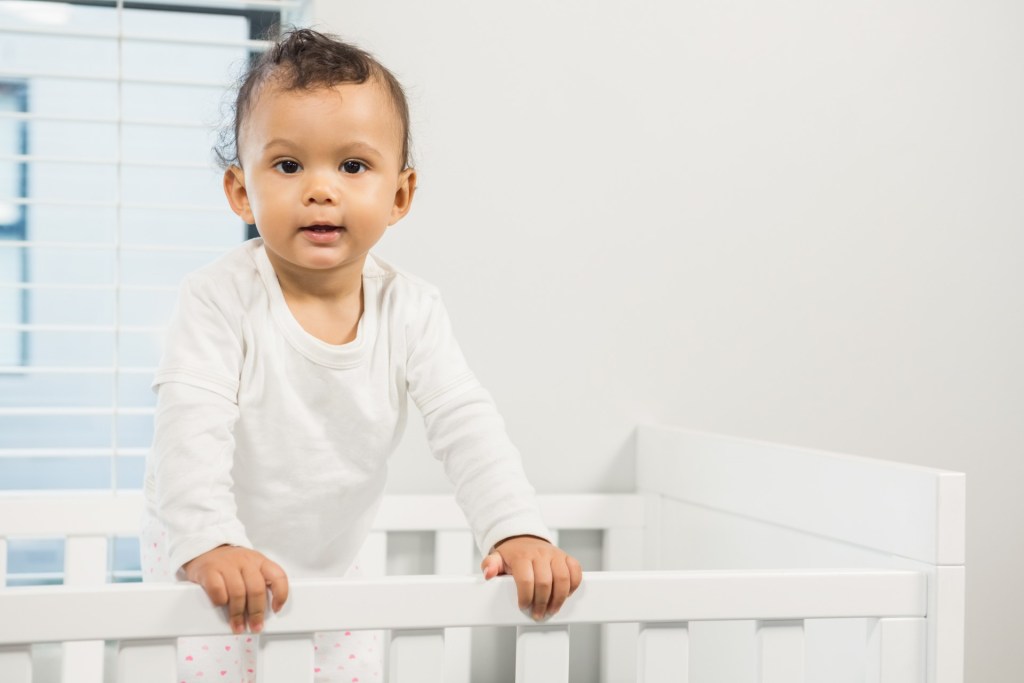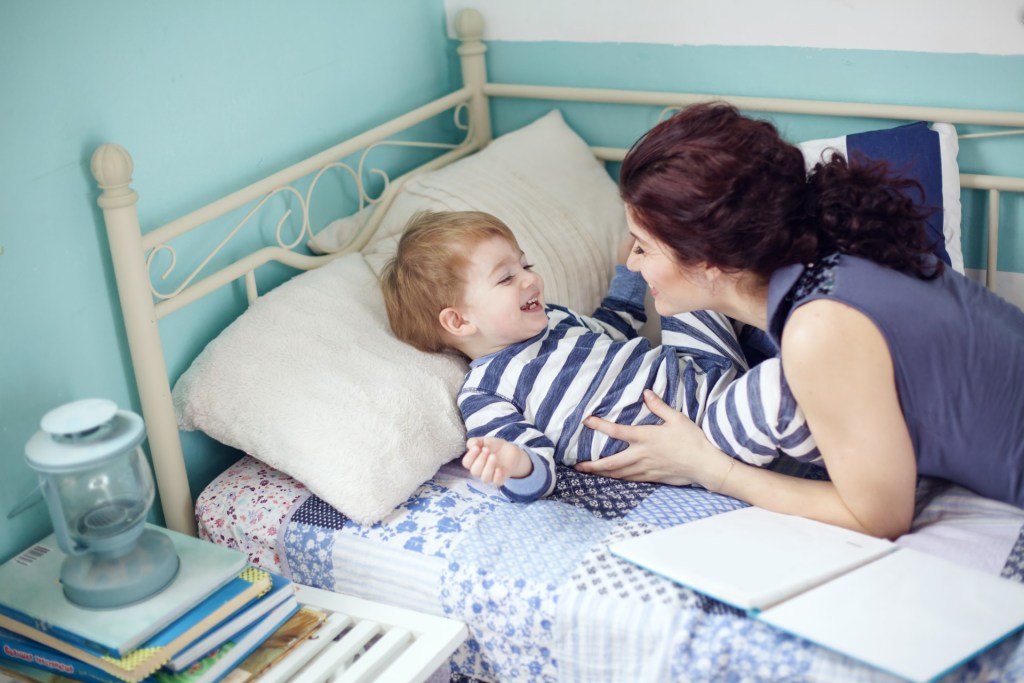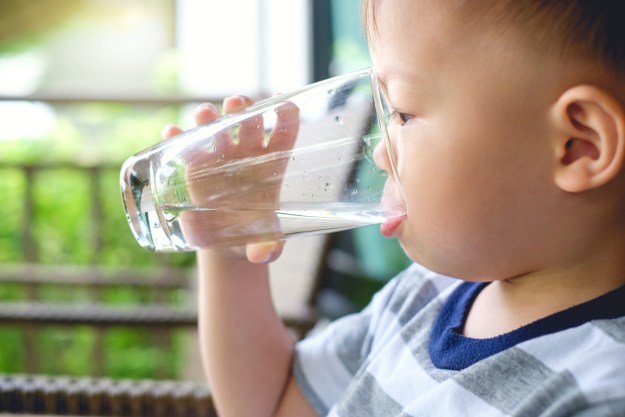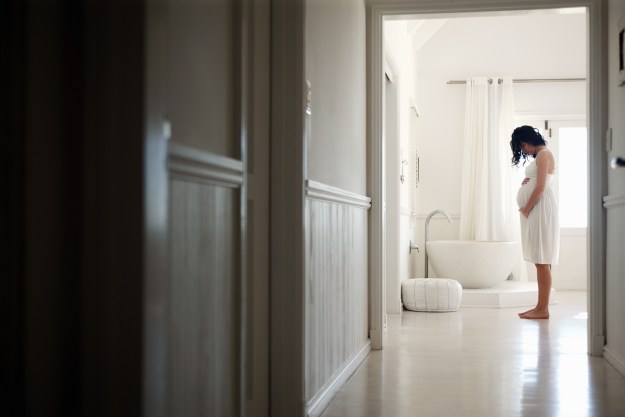It’s a rite of passage — the moment when your baby makes the transition from the crib to a big kid bed. Just like first steps and first words, this is an exciting time for parents and children alike. It can be challenging to know when to move your child from a crib, however.
The short answer is that every child is different, and the right move will depend on your child and your family’s needs. Let’s take a look at a few things you might consider when you want to know if it’s the right time to make the switch.

What do the experts say?
There’s no specific recommended time to transition children from cribs to beds, but most parents choose to move their kids somewhere between 18 months to 3 years. The most significant recommendation from experts is to move the crib mattress to the lowest position to prevent falls.
Experts do recommend that you take precautions to keep your child from falling while trying to climb out of the crib. If your child is getting limbs stuck between the crib slats or attempting to escape during nap or bedtimes, this could be a hazard.
When your child begins to stand up in the crib, it’s essential to watch for signs of fall hazards. Children may attempt to crawl out of their crib around the time they’re practicing walking, but not all children will try to escape.
Choosing a crib or bed on your own
If safety isn’t part of the reason you transition, knowing the right time to get a bed is murkier. There are a few things you might ask yourself.
How old is my child?
If your child is coming out of the toddler phase, this might be an excellent time to consider a bed. Your child is gaining a little more independence, and a bed is part of that package.
Toddler or regular beds with safety rails and that are low to the floor can give your toddler more room to move around and gain some independence. Older children may also be eager to leave behind the trappings of “babyhood” and start asking for regular beds.
Do I need the crib for another child?
If you have another child on the way, it may be time to begin training your older child to leave the crib. Even if your older child isn’t showing signs of wanting to transition to a bigger bed, it could be developmentally appropriate.
If this is the case, you can transition over a period of time, or make the change all at once. A lot will depend on your child’s personality. Make sure the bed you choose has a low clearance if at all possible and invest in railings to keep your child from rolling out.
Is my child at risk?
If your child is on the younger side and showing attempts to get out of the crib, this could be dangerous. It’s time to transition to a bed to prevent falling. Also, if children play with crib rails, they could get limbs stuck, causing injury as they try to escape.
It’s not worth the risk, even if you’d prefer to use the crib for a little longer. If your child’s crib can transition to a toddler bed, now is the time to make that change. Otherwise, source a quality toddler bed or invest in a twin bed with rails.
How to make the transition step by step
There are two methods to transitioning your child — gradual and all at once. Take your child’s personality into account to decide which one is right.
Gradual method:
- Get a toddler or twin bed and allow your child to be part of the process of choosing which one, if possible.
- Allow your toddler to explore the bed. Talk about how fun the new bed is and provide plenty of one-on-one time.
- Try out nap time in the new bed to allow your toddler to adjust to the new sleeping arrangement.
- Talk about removing the crib because your child is a “big kid.”
- If your child is unwilling to move from the crib, set up a sticker chart or other reward system, much like potty training or other big milestone training to help move things along.
- Remove the crib.
The gradual method can take as much or as little time as you want, but you must remove the crib at some point. Allow it to build toward that moment.
The all-at-once method:
- Talk to your child first about moving to a big bed. Set a date on the calendar and count down (not too far!).
- Allow your child to take part in choosing the new bed, if at all possible.
- Take down the crib and put up the new bed. Stick with your regular routines, but help your toddler into the new bed instead of the crib.
- Stick it out. If your toddler is unsettled, go in the same way you would with the crib to help soothe but remain consistent.
- Do not go back to the crib! Consistency and firm support is key.
- With the all-at-once method, the most important thing is to remove the crib and stick to that. Some children will take right to a new bed, but others will need consistency. Don’t give them a choice to go back.

Crib or bed? It’s up to your family
Knowing when to make the transition is part of your family’s needs and lifestyle. Watch for signs that the time is right to make the change and then be consistent. Your toddler will get the hang of the new bed when the time is right, and you’ll be able to achieve this milestone together.
Editors' Recommendations
- Why do babies growl? Understanding your little one’s weird sounds
- Is your kid screaming for no reason? Here are ways to deal with a screaming child’s behavior
- When do pregnancy cravings actually start? The answer may be surprising
- We love these gorgeous aesthetic names for baby boys and girls
- Glass vs. plastic baby bottles: Here’s what doctors have to say


